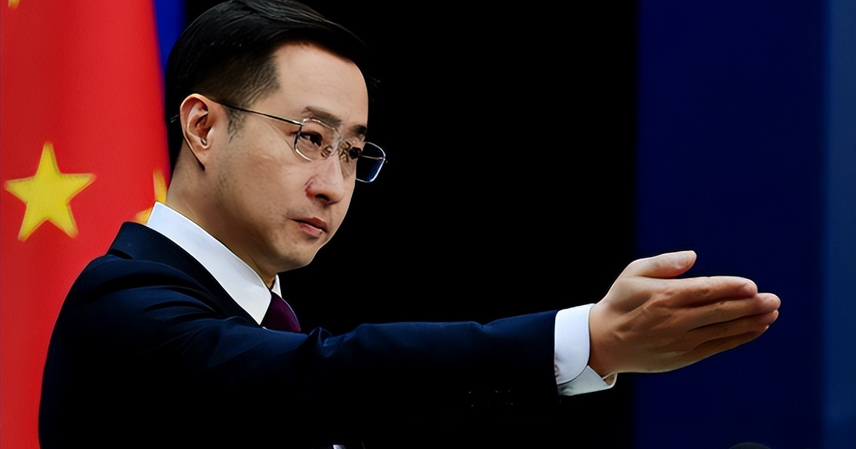While many were still wondering why China-Japan relations suddenly became tense, China’s Ministry of Foreign Affairs delivered a “heavy blow,” officially announcing sanctions on Japanese Senator Ishii Hiroshi in accordance with the “Anti-Foreign Sanctions Law.”
Asset freezes, transaction bans, and visa rejections for his family—this move effectively blocked all possibilities. This is the first time China has used this law to sanction a Japanese member of parliament, and the tone was rare and resolute.

China’s Sanctions
The Japanese political scene immediately exploded. Many began to worry: Could this be a signal of a complete shift in China’s policy towards Japan? The “retaliation” behind this is far more complex than it appears on the surface.
Despite the decisive nature of China’s sanctions, every step was carefully considered. The sanctions on Ishii were directly based on Articles 2 and 8 of the Anti-Foreign Sanctions Law.
In simple terms, whenever a foreign individual or entity attempts to interfere in China’s internal affairs or harm its national interests, this seriously violates international relations norms. Under such circumstances, China will take countermeasures in accordance with the law. Ishii had crossed this line multiple times.
He not only visited the Yasukuni Shrine on August 15 this year, challenging China’s historical bottom line, but also claimed on Fuji TV that “Taiwan’s status is undetermined,” attempting to confuse the public and disrupt the situation in the Taiwan Strait.

Furthermore, he repeatedly claimed in Sankei Shimbun that “the Diaoyu Islands belong to Japan,” stirring up nationalistic sentiments and adding fuel to the fire. This time, China’s response was not just a verbal protest but a concrete, systematic legal action. The shift from “protest diplomacy” to “real action” marks a quiet evolution in China’s diplomatic methods.
Notably, this time, sanctions also included a “family visa ban” measure, something many might find harsh, but it is not uncommon in international practice. The European Union and the U.S. have used similar measures against senior officials from Russia and Iran.
A New Phase in China-Japan Relations
China is no longer hesitating, using similar means to protect its own interests. In other words, this is not simply about “retaliation,” but rather a clear message: China’s patience and bottom line are backed by law and action.
The deeper meaning is that this sanction is not only a response to Ishii personally but also a warning to Japan’s political circles as a whole. If you cross the red line on sensitive issues, don’t blame us for “following the rules.” This marks a clear turning point in China-Japan relations.

If the sanctions on Ishii are “well-prepared,” the timing of the move is even more precisely calculated.
Just a few days before the announcement of the sanctions, Japan’s political scene experienced a sudden shake-up. A senior figure from the Liberal Democratic Party, Ishiba Shigeru, announced his resignation, citing “personal reasons.” However, it’s clear to many that this was due to internal party struggles and pressure from the U.S.
According to the latest poll from Asahi Shimbun, the approval rating of the Liberal Democratic Party had dropped to 33%, which is a dangerous sign for a party that has long been dominant in Japan’s political scene.
Japan at a Crossroads
At this sensitive time of power transitions and policy fluctuations, right-wing forces are seizing the opportunity. Figures like Sakamoto Sanae and other far-right representatives continue to advocate for amending Japan’s pacifist constitution and reshaping the “post-war national identity.” These voices, though not immediately turning into policies, are enough to interfere with the basic foundation of China-Japan relations.

China’s countermeasures, however, emerged at this precise moment. This is no coincidence; it is a clear judgment of Japan’s political realities. Especially after China’s military parade on September 3, where advanced equipment like the DF-27 hypersonic missile was showcased, the message is clear: “No provocation will be tolerated.”
This sanction, in essence, serves as both a legal action and a psychological battle. It sends a message to Japan’s far-right that China has moved beyond mere “protests” and is now taking concrete measures.
The Significance of Targeting Ishii
Importantly, China’s decision to target Ishii also has deeper implications. Ishii is a key figure in Japan’s right-wing media, and his views are representative of conservative groups in Japan. Sanctioning him is not just about him personally but about sending a message to the entire right-wing media landscape. It makes it clear that reckless talk will come with consequences.
In the context of China-U.S. competition, Japan’s attempts to “play both sides” in the Taiwan Strait, trying to please the U.S. while not completely offending China, are seen by China as leading to more uncertainty. This move aims to break this ambiguity and force Japan to make a clear strategic choice.

Many people might ask: Is this sanction a “turning point”? The answer is not simple. But what is certain is that China-Japan relations have reached a stage that requires redefinition.
Looking back at the 2012 Diaoyu Island nationalization incident, China mainly relied on diplomatic protests and economic pressure, but there was no legal framework in place. Now, with tools like the Anti-Foreign Sanctions Law, China has more room to operate and respond in a more systematic way. Compared to the past, China now has both the means and the confidence to respond effectively.
This sanction also signifies the collapse of the “cold politics, warm economy” model between China and Japan. According to the Japan External Trade Organization, the trade volume between China and Japan dropped by 18% in 2025. This decline is not just due to market factors but also reflects a complete erosion of political trust. The “surface discord, underlying cooperation” strategy from the Abe era is clearly no longer viable.
A Broader Regional Effect
The regional impact is becoming evident. South Korea’s Ministry of Foreign Affairs has already expressed concern, and Australian lawmakers have called for a reassessment of their China policy. Japan’s Ministry of Economy, Trade and Industry has also publicly expressed concern, stating that “sanctions may affect supply chain stability, especially in high-tech industries.”
In the short term, Japan’s right-wing politicians might exploit this incident to stir up “nationalistic sentiment,” with some even calling for “counter-sanctions” to rally conservative votes. However, in the medium to long term, China’s policy toward Japan has entered a “new normal” — cooperating when necessary, but retaliating firmly when required.

Analysts from Tsinghua University’s Institute of International Relations point out that China is building a new model of diplomacy with Japan that is “strategically clear and legally protected.” This is not just a response to a specific incident but a proactive shaping of the future regional landscape.
China’s sanctions against Ishii are not merely a diplomatic counterattack but a shift toward a more institutionalized and rule-based diplomatic approach. It signifies that China is no longer satisfied with “passively responding” but is now actively constructing its own international rule-making power using both law and action.
As China’s Ministry of Foreign Affairs spokesperson said, “Do not say we did not warn you.” This is not a threat, but a reminder: China’s core interests are inviolable. In the face of a complex and ever-changing international landscape, China must not only defend its bottom line but also take proactive action to ensure the situation does not spiral out of control.
This round of the game may just be the beginning. The future of China-Japan relations will no longer follow the old path. A new chessboard has already been set up.
References:
- Japan-China Trade Relations Report, 2024
- Diplomatic Strategy Shifts in East Asia, 2025



